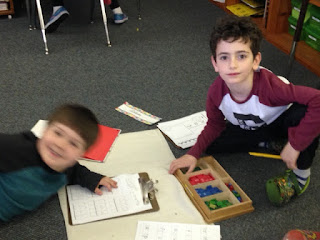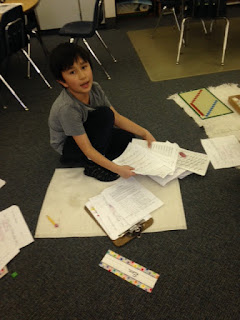Celebration of Holidays
 |
Kareem shared Eid al-Adha, which translates as the "Festival of the Sacrifice". It is also known as the Greater Eid. It is a holy time of sacrifice and generosity to friends, family, and the needy. |
In our classroom environments, celebrating holidays and festivals is an important and exciting study for the students that focuses on the tradition and rituals of celebrations.
Our students retain the joy of holiday celebrations as they learn about a variety of cultural observances. Learning about the holidays of different cultures embraces the Montessori principals of inclusion and peace and helps students understand that celebrations have had a great significance to people throughout time and across all cultures. Holidays are a way that people come together to worship that which they hold dear, to rejoice, and usually to feast with their community and families. The message is clear: it is wonderful to be different and honor what is unique about each culture and person, but let us celebrate our humanity together.














































